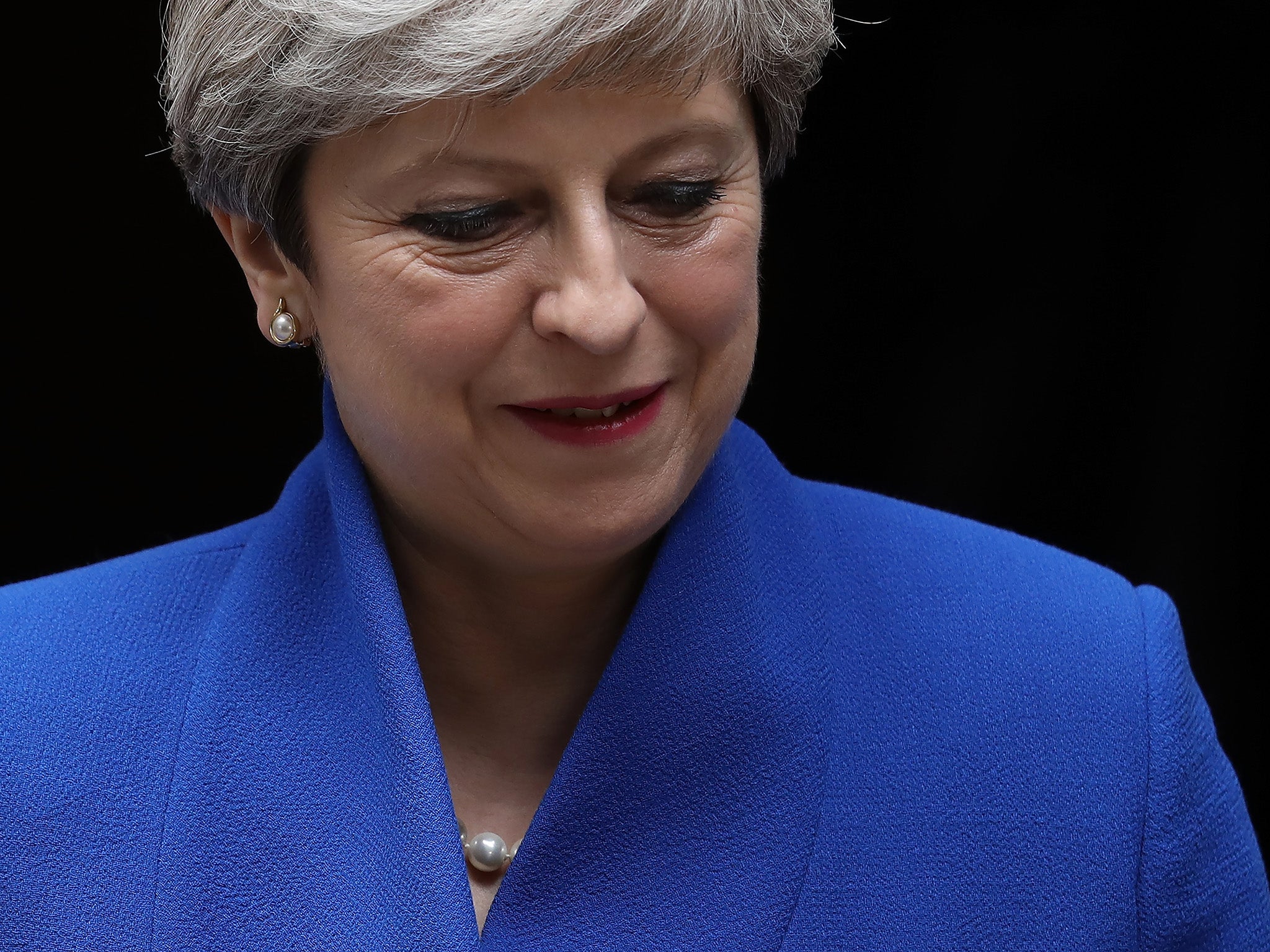Theresa May needs to face reality after the general election result
The Prime Minister – if indeed it is Ms May who is in office in the weeks ahead – must recognise that the country has had enough of austerity

Throughout the election campaign, Theresa May seemed reliant on banalities. Her speeches, often delivered to small, partisan audiences, were peppered with facile mantras – “strong and stable” overtaking “Brexit means Brexit” as the most tired phrase in Britain. Plainly she believed it would be enough to win the landslide she must have expected in April when she decided to go to the polls.
Now, having suffered the almost unthinkable ignominy of losing the majority she seemed certain to extend, Ms May’s first response shifted from the inane to the delusional. Speaking in Downing Street, the catchphrase morphed this time into “safe and secure”, and she repeated the need for “certainty”. She spoke about an agenda “for the next five years”, as though her position in the role were guaranteed beyond the next five weeks. There was no humility, no good grace; the Prime Minister seemed frankly divorced from reality. Not until she appeared for a second time, apologising to the MPs who had lost their seats, and offering contrite assurance that she will “reflect on what happened”, did Ms May show any sign that she understands the startling reverses her party has suffered.
Let us hope that such reflection helps the Prime Minister understand the crushing changes that have come thick and fast since that exit poll stunned us all. There has been no sign so far of any reassessment of her approach to hard Brexit, yet surely even this leader will struggle to pass off such a humiliating result as a mandate for her confrontational, uncompromising attitude to Europe, or of her willingness to take the UK out of the single market.
What comes next for us all is uncertainty. In order to get any parliamentary business done, the Conservatives must govern hand in glove with the Democratic Unionists, working on a “confidence and supply” basis. The DUP – staunchly Eurosceptic, anti-abortion, anti-gay marriage – will demand a price for their cooperation; the kingmaker role has its advantages.
Theresa May and her supporters will argue – no doubt in parrot fashion – that the Conservatives won a share of the vote not seen by the party since Margaret Thatcher was in her pomp. Yet it should be abundantly clear that large swathes of the public are at best sceptical of her formula for hard Brexit, and at worst deeply hostile to her leadership. It is imperative to the democratic process and to Britain’s future relationship with the EU that Ms May and her cabinet reflect on these facts long and hard.
Similarly, the Prime Minister – if indeed it is Ms May who is in office in the weeks ahead – must recognise that the country has had enough of austerity. A continued refusal to acknowledge that the terms of public and political debate have changed will simply not do. Too many people are tired of the response that “there isn’t a magic money tree”.
The other politician who should be chastened by the election result is Nicola Sturgeon, whose hubristic call for a second independence referendum was almost as disastrous as Ms May’s decision to call a snap vote. Remarkably, it was SNP losses which kept the Conservatives from absolute catastrophe and it should be clear that Scottish independence is off the agenda for the foreseeable future.
For Labour of course, there is jubilation. The outcome is better than almost anybody predicted and has demonstrated once again Jeremy Corbyn’s ability as a campaigner with a human touch. It is clear too that left-wing policies can gain traction in modern Britain. After all, the Labour Party has not won 40 per cent of the popular vote since 2001 and did so this time with a radical manifesto.
Yet there remains a great deal for the party and its leadership to prove, especially as a parliamentary force. For all the immediate glee, Labour must not lose sight of the fact that it is still some distance from power – this election felt triumphal but it was not a victory. Mr Corbyn must now consider how he will both hold to account, and work with, the Government during the difficult period of Brexit deal-making ahead. If he can do that – and especially if he can also restore alliances with talented MPs in his own party with whom he has previously had differences – he may indeed make Labour electable.
The challenges already facing the UK have been magnified by the outcome of this extraordinary election. But it has also shown that hope is alive and well in this country – it was Mr Corbyn’s optimistic vision which most obviously captured public attention. Most significantly, the election has demonstrated that young people can be engaged in the mainstream political process. Early estimates put the turnout among 18-24 year olds at a level not seen since 1992. Young people, growing up in such tough times, will not be ignored again in elections if they continue to turn up and vote. The challenge for politicians of all parties is to understand, as Mr Corbyn has done, that when they talk of the future, it is to the young that they should be looking.

Join our commenting forum
Join thought-provoking conversations, follow other Independent readers and see their replies